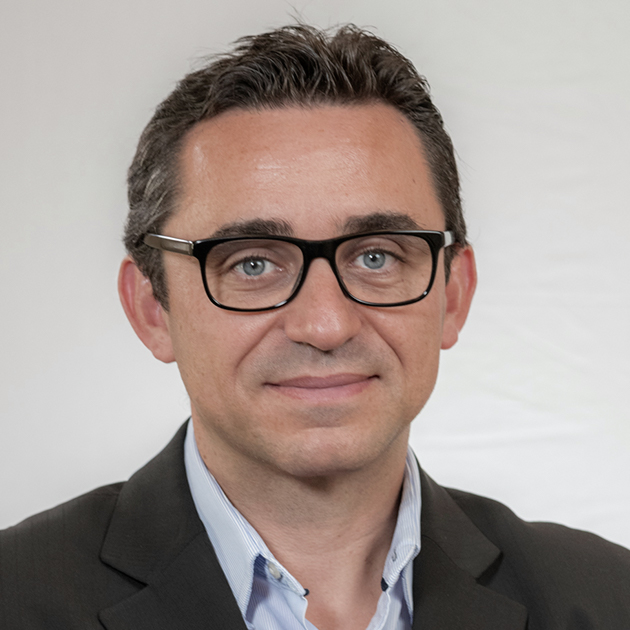Frédéric Grillot
Télécom Paris, Institut Polytechnique de Paris, France and The University of New-Mexico, USAFor his pioneering work on mid infrared optoelectronics and quantum dot lasers for silicon photonics.

Frédéric Grillot aims to produce cutting-edge advancements in quantum photonics technologies for the benefit of humanity. He achieves this by attracting, training, and mentoring talented students to push the frontiers of science and engineering. Frédéric is dedicated to continuing fundamental research in the field and admires scientists who bridge the academic and industrial sectors, effectively translating their research into commercial applications. Reflecting on his career trajectory, Frédéric aspires to do the same. With over 20 years of experience, he is driven by a desire to push quantum dot physics into the mainstream and remains optimistic about the advancements and applications of this technology for datacom and computing.
Frédéric's research focuses on the innovative utilization of light and photons in various technologies. Specifically, he explores the use of lasers, detectors, and modulators as essential components to achieve high throughput across a wide range of infrared spectra, from short to long wavelengths. His group is at the forefront of pioneering breakthroughs. Recent experimental achievements within his team highlight strong progress in squeezed light generation through quantum dot lasers, showcasing their versatility and promising potential for controlling light beyond the quantum limit, thereby propelling advancements in high-precision sensors and quantum communications.
In Frédéric’s current role as a group leader, finding time to devote to working in the lab and conducting experiments is increasingly difficult. He enjoys setting up experiments and interacting with students in the lab but admits that this takes a lot of time. He shares that his favorite part of the scientific work is writing the article after the experiment and simulations are done, and he likens the paper to a completed painting. The article at the end realizes all the theory and time put into the research. He shares, “When the paper is done and submitted, for me, that’s an achievement.”
Throughout his career, Frédéric has had the support of excellent mentors who have provided guidance inside and outside the lab. Luke Lester showed interest in Frédéric’s PhD research during a visit to the lab, but the timing wasn’t right for a collaboration. A few years later, Frédéric reconnected with Luke at the University of New Mexico, and the two are collaborators still today. Luke was particularly influential in making connections for Frédéric in the research ecosystem in New Mexico. Another mentor from the early days of Frédéric’s career is Vassilios Kovanis, who also remains a collaborator today. More recently, John Bowers and Frédéric have developed a rewarding relationship, and Frédéric has traveled to the Bowers group for several summers.
Andrew (Andy) Weiner, who passed away in 2024, introduced Frédéric to Optica. The two met in Taiwan at the International Symposium on Physics and Applications of Laser Dynamics in 2011. Two years later, Frédéric was the conference organizer and approached Andy about having a special issue in Optics Express around the symposium. Eventually, Frédéric became an associate editor of the journal, worked his way up, and is today a deputy editor. Frédéric has built an excellent relationship with Optica thanks to Andy's guidance and connections.
Frédéric reminds young researchers that a career in academia can be challenging and requires a lot of patience and perseverance. However, an outstanding academic must also have curiosity, creativity, and a willingness to take risks. Frédéric comments, “You never know what you will do, what you will research, or what you will discover.” He reflects that after 20 years of leading a group, he can identify these characteristics in students and help guide them to the best path.
Outside of research, Frédéric finds that having a hobby unrelated to science is almost like a medical prescription. Cycling is a required escape, allowing him to clear his mind and think about nothing for a short time. He started cycling around age 14 and travels to the French Alps every summer to climb the steep roads, including those used in the Tour de France. Like the challenges faced in research, the challenge of the climb provides a rewarding experience when achieved.
Photo Credit: Frédéric Grillot
Profile written by Samantha Hornback
